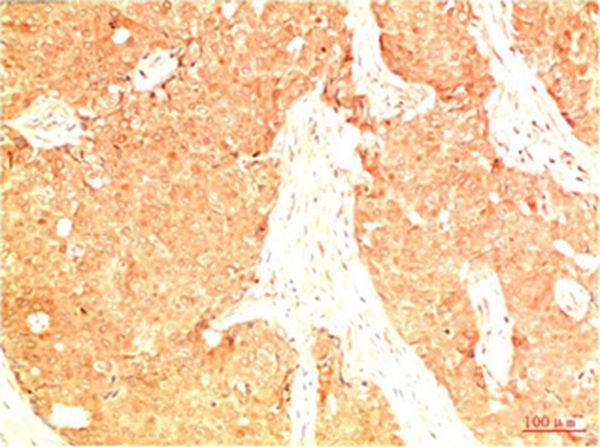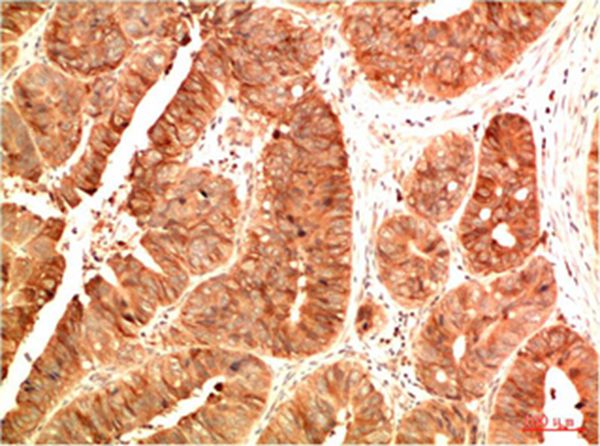

| WB | 咨询技术 | Human,Mouse,Rat |
| IF | 咨询技术 | Human,Mouse,Rat |
| IHC | 1/50-1/200 | Human,Mouse,Rat |
| ICC | 技术咨询 | Human,Mouse,Rat |
| FCM | 咨询技术 | Human,Mouse,Rat |
| Elisa | 咨询技术 | Human,Mouse,Rat |
| Aliases | Cellular tumor antigen p53 (Antigen NY-CO-13) (Phosphoprotein p53) (Tumor suppressor p53) |
| Entrez GeneID | 7157; |
| WB Predicted band size | 53kDa |
| Host/Isotype | Rabbit IgG |
| Antibody Type | Primary antibody |
| Storage | Store at 4°C short term. Aliquot and store at -20°C long term. Avoid freeze/thaw cycles. |
| Species Reactivity | Human,Mouse,Rat |
| Immunogen | Synthetic Peptide of Acetyl P53(K382) |
| Formulation | Purified antibody in PBS with 0.05% sodium azide,0.5%BSA and 50% glycerol. |
+ +
以下是关于Acetyl p53(K382) (15F4)抗体的3篇参考文献示例(内容为模拟概括,建议通过学术数据库核实具体文献):
1. **文献名称**:*"Acetylation of p53 at lysine 382 regulates DNA damage-induced apoptosis"*
**作者**:Tang Y. et al.
**摘要**:研究报道了DNA损伤后p53蛋白K382位点的乙酰化对其促凋亡功能的调控机制,采用15F4抗体通过ChIP实验证实了该修饰在靶基因启动子区域的富集。
2. **文献名称**:*"SIRT1 deacetylates p53 and modulates its transcriptional activity"*
**作者**:Vaziri H. et al.
**摘要**:揭示了SIRT1去乙酰化酶通过特异性去除p53 K382位点的乙酰化(使用15F4抗体进行WB验证)抑制p53的转录活性,从而参与细胞应激反应调控。
3. **文献名称**:*"Regulation of p53 stability and activity by post-translational modifications"*
**作者**:Brooks C.L. & Gu W.
**摘要**:综述了p53翻译后修饰(包括K382乙酰化)对其功能的影响,引用了15F4抗体在多项研究中用于检测该修饰的实验数据。
**注意**:以上为基于典型研究的模拟描述,实际文献需通过PubMed/Google Scholar检索关键词“Acetyl p53 K382 15F4”或相关术语获取。
×